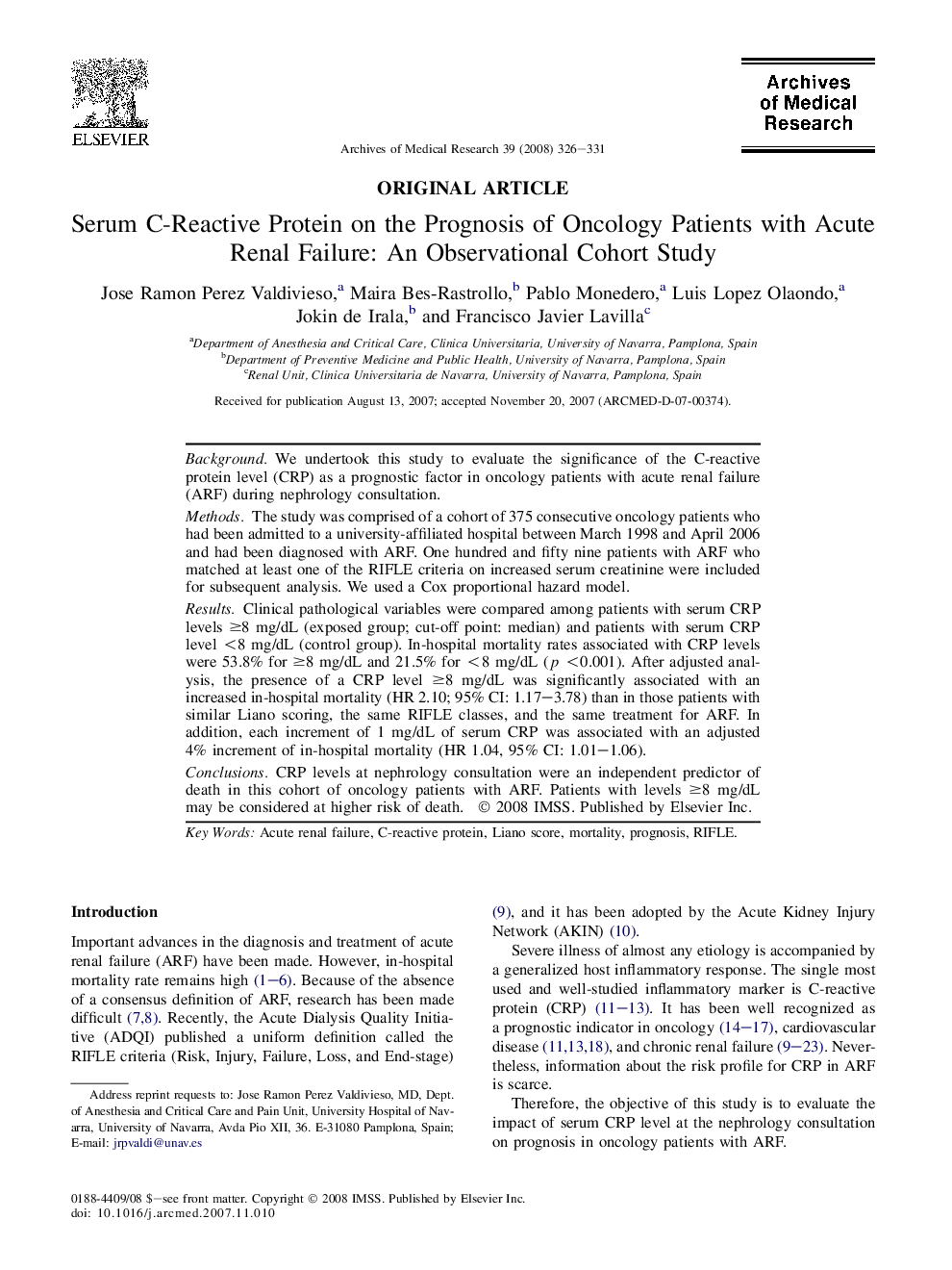| Article ID | Journal | Published Year | Pages | File Type |
|---|---|---|---|---|
| 3447081 | Archives of Medical Research | 2008 | 6 Pages |
BackgroundWe undertook this study to evaluate the significance of the C-reactive protein level (CRP) as a prognostic factor in oncology patients with acute renal failure (ARF) during nephrology consultation.MethodsThe study was comprised of a cohort of 375 consecutive oncology patients who had been admitted to a university-affiliated hospital between March 1998 and April 2006 and had been diagnosed with ARF. One hundred and fifty nine patients with ARF who matched at least one of the RIFLE criteria on increased serum creatinine were included for subsequent analysis. We used a Cox proportional hazard model.ResultsClinical pathological variables were compared among patients with serum CRP levels ≥8 mg/dL (exposed group; cut-off point: median) and patients with serum CRP level <8 mg/dL (control group). In-hospital mortality rates associated with CRP levels were 53.8% for ≥8 mg/dL and 21.5% for <8 mg/dL (p <0.001). After adjusted analysis, the presence of a CRP level ≥8 mg/dL was significantly associated with an increased in-hospital mortality (HR 2.10; 95% CI: 1.17–3.78) than in those patients with similar Liano scoring, the same RIFLE classes, and the same treatment for ARF. In addition, each increment of 1 mg/dL of serum CRP was associated with an adjusted 4% increment of in-hospital mortality (HR 1.04, 95% CI: 1.01–1.06).ConclusionsCRP levels at nephrology consultation were an independent predictor of death in this cohort of oncology patients with ARF. Patients with levels ≥8 mg/dL may be considered at higher risk of death.
